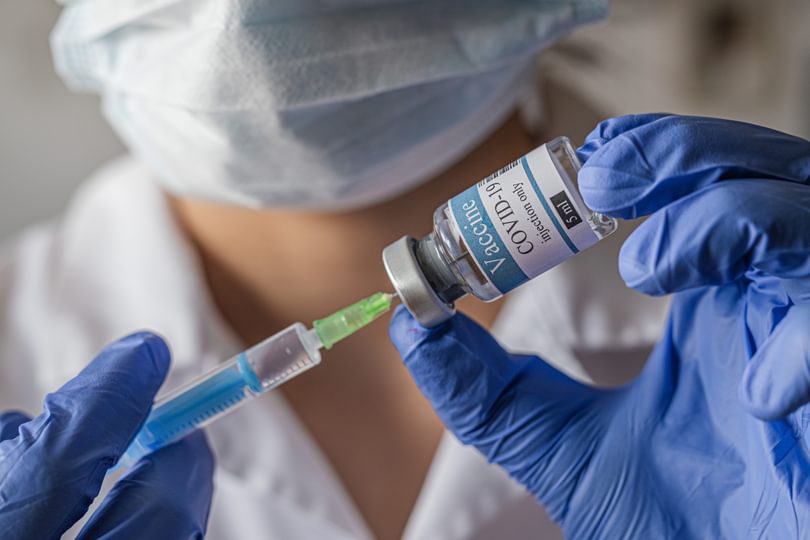
Will the current system of drug innovation and access to medicines meet global expectations?
The global race to develop effective new vaccines and treatments started almost as soon as the threat posed to the world by COVID-19 became clear. Yet, of all the challenges to resolving the current global pandemic, one of the most critical and often overlooked is the issue of the intellectual property (‘IP’) ownership of these new therapeutics. In the pharmaceutical industry ownership of the IP or patent to a new drug or vaccine provides the owner with a temporary monopoly on that particular therapeutic to charge for or negotiate its distribution as they see fit.
Despite numerous claims being made by pharma companies that it is not ‘business as usual’ anymore, the reality is different. COVID-19 has not altered the operation of the industry: pharma companies are engaging in proprietary research and generating proprietary data, the outcomes of which will still be protected by IP. In the middle of this pandemic, precious time and resources are being spent in IP negotiations and the agreements that arise may pose significant barriers to timely, affordable, and equitable access to vaccines and treatments worldwide.
vaccine and treatment nationalism is unacceptable and dangerous
There is a significant concern that both IP ownership and existing manufacturing capacities may become a barrier to access. Once developed, these medicines will need to be promptly produced and distributed to billions of people worldwide. Wealthy countries are placing advance orders for millions of doses of yet to be developed vaccines, prioritising the immunisation of their own citizens. This casts doubt about whether other countries will be able to access any vaccines in a timely manner. This vaccine and treatment nationalism is similar to what we experienced in 2009 during the H1N1 influenza pandemic, and it is unacceptable and dangerous.
In addition, there is a fear that IP may create an affordability barrier to vaccines and treatments for COVID-19. These fears are not without merit. For several decades, the problem of the cost of medicines has been a topic of heated debate at the international level. The central point has been the tension between, on the one hand, the exclusive rights stemming from patents and other IP that protect medicines and allow pharmaceutical companies to set prices, and, on the other hand, the problem of limiting access to these medicines because of excessive prices.
HIV continues to kill millions because of unaffordable patented medicines
The global standard obliges WTO-members to provide patent protection to medicines and has resulted in many countries not being able to provide sufficient access to essential medicines for their populations. As was stated in a 2016 Report prepared by the UN High-Level Panel on Access to Medicines, diseases such as HIV, which have become manageable chronic conditions in developed countries, continue to kill millions of people in low- and middle-income countries because of the unaffordably high prices of patented medicines. Moreover, developed countries are also increasingly suffering from high drug prices. One of the latest examples is Zolgensma, a gene therapy that is priced by Novartis at a record $2.125 million.
Realising the deficiencies of the current system, various calls have been put forward aiming at controlling prices, facilitating access, and stimulating genuine innovation. Despite this, no tangible changes in the operation of this system have occurred. Yet, we are relying on this very system to provide the solution to the global coronavirus pandemic by developing breakthrough medicines and providing affordable and equal access worldwide.
Learning from past experience, it is important to comprehend that without changing the current system, the possibility to successfully fight the novel coronavirus may be either inaccessible or unaffordable for many countries. The only viable way to combat the pandemic is through collaboration, IP and data sharing. To this end, the WHO has called for pharmaceutical companies to pool their intellectual property for all medical interventions to enable governments or generic drugmakers to manufacture and sell the products based on need and efficacy. This type of pooling has been used in the past to extend treatments for HIV/Aids, tuberculosis and Hepatitis C to low-income countries at affordable prices.
This pandemic has raised the flaws in the current drug development system to a global threat
Unfortunately, it seems that biopharmaceutical companies are reluctant to disclose and share their IP despite the enormity of the global situation. As a result, this pandemic has exposed our pervasive dependence on private pharmaceutical companies. While we are eagerly waiting for them to develop COVID-19 medicines and share them with the world, we must not forget that they are profit-oriented businesses and are not designed to operate in such extraordinary circumstances. This results in an enormous expenditure of resources and time, with unpredictable outcomes both in terms of efficacy and safety of the researched medicines, as well as the price for society.
This pandemic has raised the fundamental flaws in the current drug development system to a global threat which requires urgent attention from the global community. This is clear from the experience of the past several decades, which has proven that this system is ineffective in delivering adequate access to medicines for all. Drawing on past experience, we need to fundamentally and urgently rethink the model of medical innovation and access in order to ensure that we are able to find prompt solutions for the development, manufacture and affordable distribution of COVID-19 medicines, as well as allowing us to be fully prepared for the pandemics of the future.
This opinion piece reflects the views of the author, and does not necessarily reflect the position of the Oxford Martin School or the University of Oxford. Any errors or omissions are those of the author.

